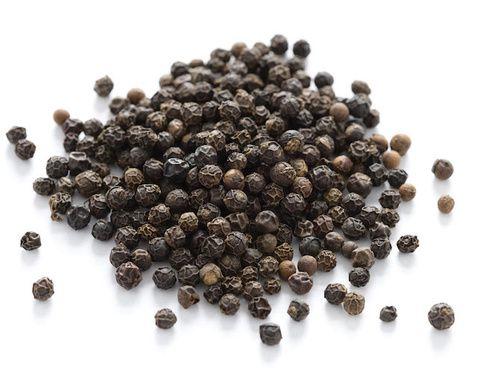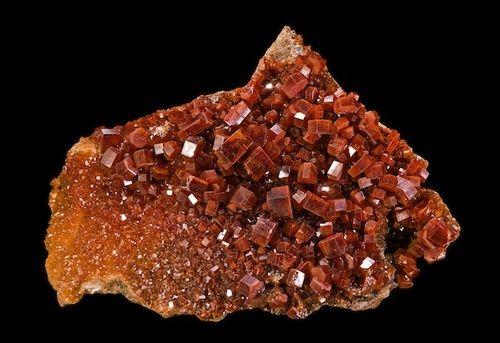Black pepper is a useful spice for promoting digestion and metabolism. Find out all the benefits, contraindications and how to use black pepper in the kitchen for body care.
Il black pepper is a useful spice to promote digestion and metabolism. Not everyone knows, however, that it can also be used for internal use, for muscle massagesie relaxing. Let's find out better.
> Properties and benefits of black pepper
> Calories and nutritional values of black pepper
> Curiosities about black pepper

Description of the plant
The spice we know as black pepper.
From the same fruits, through different processing procedures, other species of pepper are also obtained: the white pepper and green pepper.
What we call instead pink pepper it is the fruit of another plant (Schinus molle) and is a spice with a much more delicate flavor mainly used for its decorative qualities.
Black pepper is produced from unripe fruits of the Piper nigrum who come blanched and left to dry in the sun for about 10 days: in this way the grains dehydrate, blacken and take on the typical wrinkled appearance.
Properties and benefits of black pepper
Black pepper is one of the remedies of Ayurvedic medicine and is one of the three spices that make up the "Trikatu" (the others are saffron and long pepper) used to promote digestion e stimulate the metabolism.
Indeed the piperine, the alkaloid contained in pepper, makes the spice stimulating, tonic and stomachic and, by stimulating the secretion of gastric juices, facilitates the digestive process e facilitates the absorption of nutrients taking full advantage of ingested food.
Not recommended in case of gastritis, ulcer or hemorrhoids because it irritates the mucous membranes.
An effect of black pepper is also that of stimulate thermogenesis, for this reason it is considered excellent adjuvant in slimming diets and to fight theobesity.
Black pepper also has antiseptic, expectorant properties and is even among the aphrodisiac foods. This spice would also be valuable for fighting depression, it seems that piperine stimulates it endorphin production in the brain and act as a natural antidepressant.
The use of black pepper is also widespread for external use: the piperine it contains seems effective in fighting vitiligo, it is used in wellness centers eudermic treatments and for muscle and relaxing massages, while a bath with black pepper essence stimulates sweating and contributes to purification of the organism.
Even in the case of bruises black pepper can be a good natural remedy to remove swelling and decrease pain with cold packs.
Learn about the properties, use and contraindications of black pepper essential oil
Calories and nutritional values of black pepper
100 g black pepper contains 251 kcal, e:
- 10,39 g protein
- G carbohydrates 63,95
- Sugars 0,64 g
- 3,26 g fat
- Dietary fiber 25,3 g
- Sodium 20 mg
Black pepper among the foods rich in vanadium: discover the others

Use in the kitchen
Black pepper really is the king of spices and with its spicy and aromatic grains it flavors many dishes in recipes from all over the world.
With the whole grains broths, salamis and sausages are enriched, while ground at the moment they decisively flavor meat and fish but also pasta (think of spaghetti with cheese and pepper of the Roman culinary tradition), soups and risottos.
Also excellent for giving a stronger flavor to cheeses and sweet vegetables such as fennel, carrots and peas.
Black pepper is so widespread that it even appears in the most famous spice blends like baharat, creole and curry.
Curiosities about black pepper
No other spice, like black pepper, pushed the search for new trade routes to the East so much, so much so that for centuries it represented a bargaining chip of the highest value.
To date the most popular spice in European cuisine, black pepper, with its spicy and aromatic flavor, was already appreciated in Ancient Egypt, so much so that some peppercorns were found in the tombs of the Pharaohs.
Known in Greece already before the XNUMXth century BC. C. and recommended by Hippocrates combined with vinegar and honey against menstrual pain, inRoman Empire became synonymous with wealth and bargaining chips. Apicius included this spice in almost all the recipes of his De re coquinaria and it seems that during the siege of Rome both the Huns and the Visigoths asked for huge quantities of pepper in exchange for the salvation of the city.
Pepper represents in the common imagination wit and vivacity so much so that talking about a person "all pepper"Emphasizes its lively and biting character while"answer with salt and pepper”Means to make a controversy or in any case show that you are determined to assert yourself.
READ MORE
Black pepper aids in the absorption of selenium supplements
Other articles on black pepper:
> The varieties of pepper and their use
> Turmeric and black pepper, why take them


























